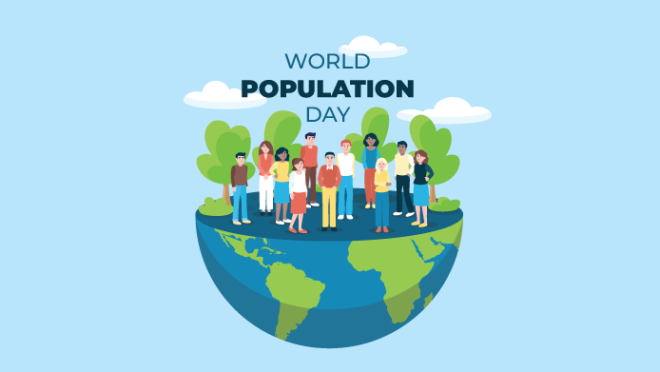World Population Day 2024: Focusing on a sustainable future
World Population Day 2024: Focusing on a sustainable future

Currently planet Earth’s population has surged past 8 billion. It is expected that the world’s population will reach 8.6 billion by 2030, 9.8 billion by 2050, and 10.9 billion by 2100.
This unprecedented growth brings with it a complex web of challenges, including environmental degradation, resource depletion, and social inequities.
Every year on 11 July, World Population Day is observed to raise awareness about global population issues. The Governing Council of the United Nations Development Programme recommended its introduction in 1989.
Inspiration for this special day comes from the interest that was raised by “Five Billion Day” on 11 July 1987. This was the day when the world’s population reached 5 billion.
World Population Day serves to highlight the growing problems that come with a growing global population. Overpopulation is a crucial issue, especially considering that world resources are depleting at an unsustainable rate.
Awareness about the effects of overpopulation on development and nature is emphasised. The increasing population also sheds light on health problems faced by women during pregnancy and childbirth, making the need for family planning, gender equality, and maternal health more important than ever.
The issue of population is also causing strain on society: heinous crimes are happening more than ever in the areas of gender inequality and human rights, especially in developing countries.
Global leaders are already doing a subpar job at taking care of its citizens, and as more people come into the world, violations such as human trafficking and child labour are increasingly becoming normal.
Another crucial aspect is the strain on natural resources. As the population grows, the demand for water, food, and energy intensifies.
According to the United Nations, by 2050, the global demand for food is expected to increase by 60%, while water scarcity could affect over half of the world’s population.
This necessitates innovative approaches to agriculture, water management, and energy production that prioritise efficiency and sustainability.
Urbanisation is another critical aspect tied to population growth. As more people migrate to cities in search of better opportunities, urban areas face challenges related to housing, transportation, and infrastructure.
The development of sustainable cities that incorporate green spaces, efficient public transportation, and renewable energy sources is essential to accommodate this influx while minimizing environmental impact.
Healthcare systems worldwide are also under pressure due to the growing population. Ensuring access to quality healthcare services, particularly in low- and middle-income countries, is crucial.
This includes reproductive health services, which empower individuals to make informed choices about family planning.
Education and awareness campaigns play a vital role in promoting responsible reproductive health practices, ultimately contributing to population stabilisation.
World Population Day also highlights the importance of gender equality in achieving sustainable development.
Women and girls often face disproportionate challenges in accessing education, healthcare, and economic opportunities. Empowering women through education and ensuring their participation in decision-making processes are key to building resilient communities and sustainable economies.
8 billion lives bring infinite possibilities. Global cooperation is the only key to ensuring a world where every life has equal opportunity. May the World Population Day bring widespread awareness on this issue.


